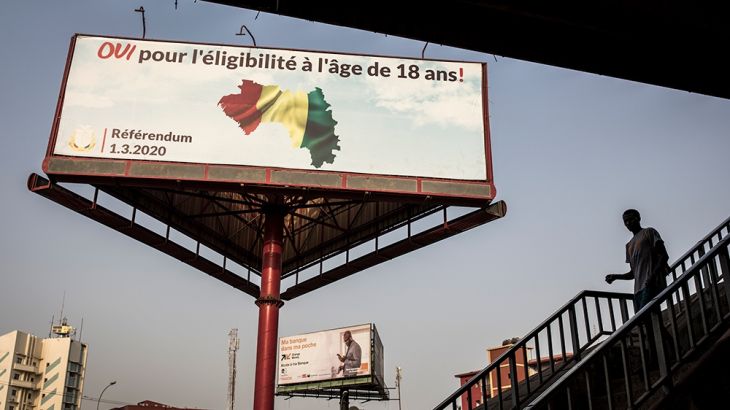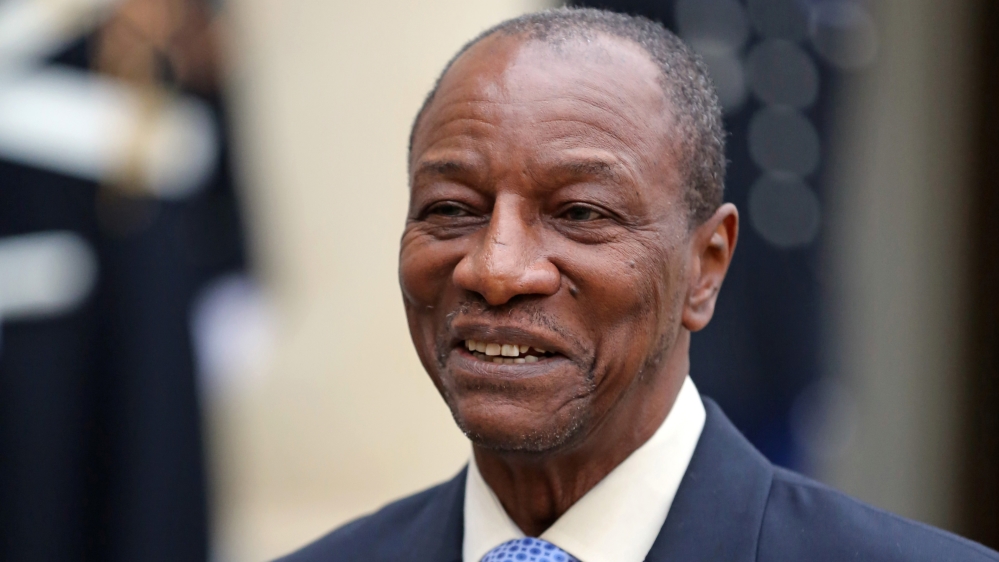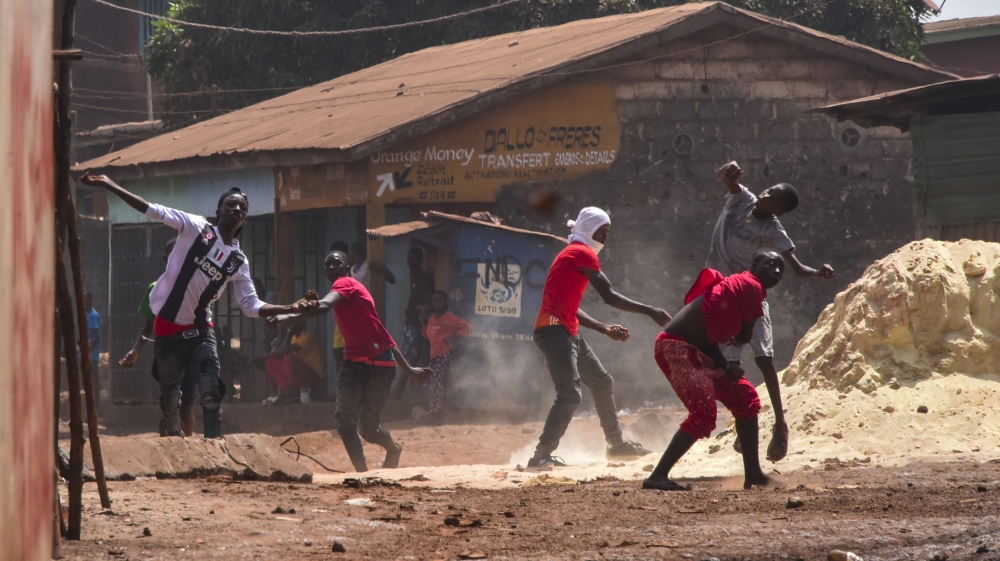All you need to know about Guinea’s contested polls
Guineans to vote on Sunday in delayed parliamentary polls and decide in referendum whether to adopt new constitution.

Voters in Guinea will take to the polls on Sunday to decide whether to adopt a new constitution and choose their members of parliament.
The constitutional referendum is deeply controversial, with critics calling it a plot that would allow President Alpha Conde to seek another term.
Keep reading
list of 3 itemsGuinea opposition parties to boycott parliamentary poll
Protests in Guinea on President Alpha Conde’s bid to extend term
For the 81-year-old, who became Guinea’s first democratically elected leader in 2010, the changes will create a “modern constitution” that will respond “to the needs of the world today”.
Since mid-October, protesters have taken to the streets to demonstrate against modifying the constitution amid opposition suspicions that Conde is manoeuvring to seek a third term. At least 30 protesters were killed in the demonstrations, as well as one gendarme.
Here is all you need to know.
What is in the draft text?
The government has argued that the 2010 constitution needs to be changed as it was approved under a transition government after military rule.
The draft includes several progressive provisions, especially for women. It would outlaw female circumcision, for example, as well as underage and forced marriages.
No single gender would be able to make up more than two-thirds of government members either.
Elsewhere, the new constitution would allow 18-year-olds to run for parliament. Currently, only 25-year-olds are eligible.

What is the controversy?
Both the 2010 constitution and the new draft constitution limit presidential mandates to two terms. But a new constitution would mean a new republic, with the presidential term counter reset to zero.
Conde would be able to run for president again even though he is approaching the end of his second term.
The new constitution would limit one presidential term to six years, rather than the five years hitherto.
Conde, whose second mandate runs out this year, has refused to rule out running again. In an interview with Le Figaro published on Wednesday, the octogenarian suggested he might seek a third term.
Why parliamentary polls?
Originally due to be held in 2019, parliamentary elections have been delayed several times.
Opposition figures suspect coupling the poll with the constitutional referendum is a way to bring more people to the ballot box.
The head of Guinea’s electoral authority, Amadou Salif Kebe, said in February that the parliamentary election had only been delayed because of technical and logistical problems.
Who is running?
Conde’s Rally of the Guinean People (RPG) party, which holds 53 seats in the 114-seat National Assembly, is fielding candidates
Several small parties are doing the same, but main opposition parties are boycotting the poll, condemning it as a “constitutional coup”.
The boycotting group includes the leading opposition party, the Union of Democratic Forces of Guinea – which currently has 37 seats – as well as the 10-seat Union of Republican Forces (UFR) party.
Parliamentary terms in Guinea, home to nearly 13 million people, run for five years.
What is on the ballot sheet?
For the constitutional referendum, voters will receive a white ballot sheet saying “YES” and a red ballot sheet saying “NO”, according to information provided by the RPG.
Voters will then cast their ballot in secret, discarding the unwanted sheet, before proceeding to another booth to vote in the parliamentary election.

When do polls open and how many can vote?
Some 7.7 million are registered to vote in the polls, according to Guinea’s Independent National Electoral Commission (CENI).
But the opposition – and the very few international observers – distrust the electoral roll.
This week, the International Organisation of La Francophonie (OIF) said it had problems identifying 2.49 million people on the electoral roll, pointing to duplicate names and people who had died.
Polls open at 7am (07:00 GMT) and close at 6pm (18:00 GMT) on Sunday, according to CENI President Amadou Salif Kebe.
He added that the results would be announced “as soon as possible” and estimated the process could take as long as a week.
